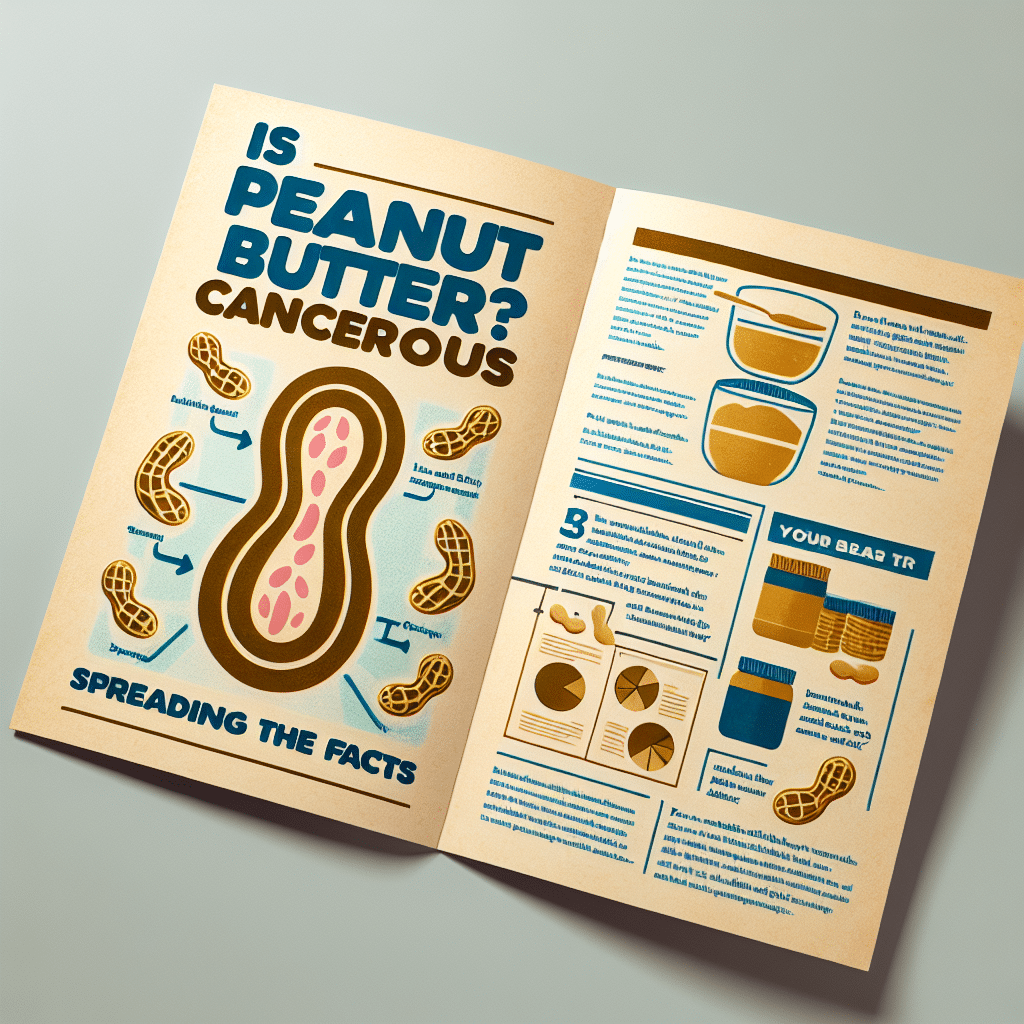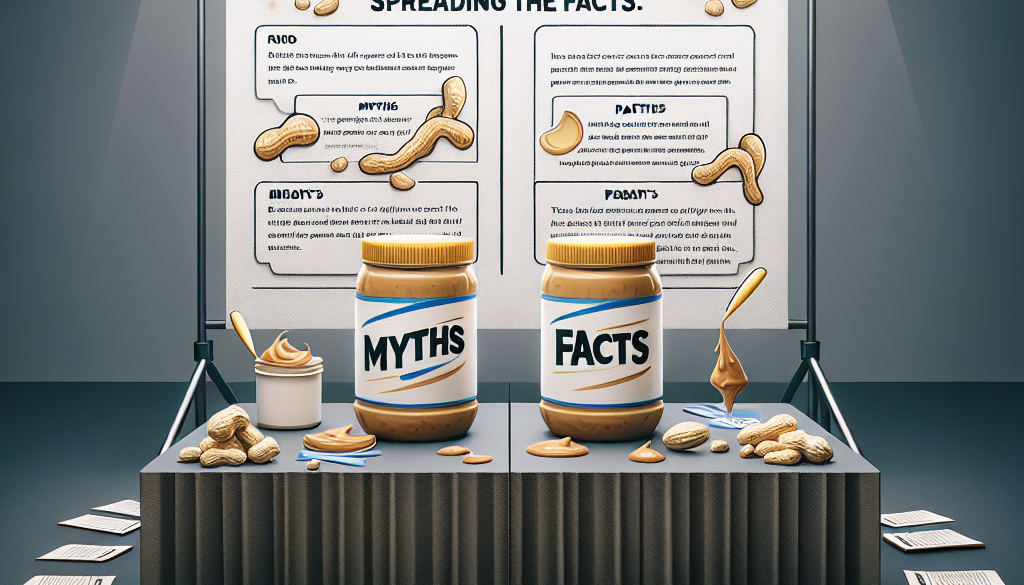Is Peanut Butter Cancerous: Spreading the Facts
-
Table of Contents
- Is Peanut Butter Cancerous: Uncovering the Truth
- The Composition of Peanut Butter
- Health Benefits of Peanut Butter
- Controversies and Concerns: Aflatoxins and Acrylamide
- Aflatoxins in Peanuts
- Acrylamide Formation
- Research and Studies on Peanut Butter and Cancer Risk
- Choosing a Healthy Peanut Butter
- Conclusion: Spreading the Facts, Not Fear
- ETprotein: Your Source for Quality Protein Products
Is Peanut Butter Cancerous: Uncovering the Truth

Peanut butter is a staple in many households, loved for its rich flavor and creamy texture. It’s a convenient source of protein and is often considered a healthy addition to one’s diet. However, concerns have been raised about the potential cancer risks associated with peanut butter consumption. This article aims to spread the facts, dispel myths, and provide a comprehensive look at whether peanut butter is cancerous.
The Composition of Peanut Butter
Understanding what peanut butter is made of is crucial in assessing its health implications. Peanut butter typically contains:
- Ground peanuts
- Vegetable oils (often to maintain creaminess)
- Salt
- Sweeteners (in some brands)
Some brands also include additives and preservatives to enhance shelf life and flavor. The nutritional profile of peanut butter includes healthy fats, protein, vitamins, and minerals, which contribute to its health benefits.
Health Benefits of Peanut Butter
Peanut butter is not just delicious; it also offers several health benefits:
- Rich in heart-healthy monounsaturated fats
- Good source of antioxidants
- Contains vitamins E, B3, and B6
- Provides minerals like magnesium, copper, and manganese
- Contributes to muscle building and repair due to its protein content
These attributes make peanut butter a nutritious option when consumed in moderation as part of a balanced diet.
Controversies and Concerns: Aflatoxins and Acrylamide
The primary concern linking peanut butter to cancer revolves around two substances: aflatoxins and acrylamide.
Aflatoxins in Peanuts
Aflatoxins are naturally occurring mycotoxins produced by certain fungi, which can contaminate crops like peanuts. These toxins have been associated with an increased risk of liver cancer. However, the United States and many other countries have strict regulations to limit aflatoxin levels in food products.
Studies have shown that modern processing methods, including sorting, roasting, and blanching, significantly reduce aflatoxin levels in peanut butter. Additionally, the risk of exposure to harmful levels of aflatoxins through peanut butter is considered very low in developed countries due to these stringent safety standards.
Acrylamide Formation
Acrylamide is a chemical that can form in some foods during high-temperature cooking processes, such as frying, roasting, or baking. It is classified as a “probable human carcinogen” by the International Agency for Research on Cancer (IARC). However, the levels of acrylamide in peanut butter are typically low and are not considered a significant risk factor for cancer.
Research and Studies on Peanut Butter and Cancer Risk
Several studies have investigated the relationship between peanut butter consumption and cancer risk. For instance:
- A study published in the “Journal of the American Medical Association” found no significant association between peanut butter intake and an increased risk of cancer.
- Research in the “International Journal of Cancer” suggested that moderate consumption of peanuts, including peanut butter, might even have a protective effect against certain types of cancer.
It’s important to note that research in this area is ongoing, and more studies are needed to fully understand the potential risks and benefits.
Choosing a Healthy Peanut Butter
To maximize the health benefits and minimize any potential risks associated with peanut butter, consider the following tips:
- Opt for natural or organic peanut butter with no added sugars or hydrogenated oils.
- Check the label for the aflatoxin-free certification if available.
- Limit consumption to a moderate amount, as part of a varied and balanced diet.
Conclusion: Spreading the Facts, Not Fear
In conclusion, the evidence does not support the claim that peanut butter is cancerous. While concerns about aflatoxins and acrylamide exist, regulatory measures and food processing techniques have significantly reduced these risks. Peanut butter can be part of a healthy diet when consumed in moderation and chosen wisely. It’s essential to stay informed and make dietary choices based on current scientific evidence.
ETprotein: Your Source for Quality Protein Products
If you’re looking for high-quality protein options to complement your diet, consider ETprotein’s range of organic bulk vegan protein and plant proteins. Their products, including peanut protein, are characterized by a neutral taste, non-GMO, and allergen-free attributes, making them a great addition to any health-conscious consumer’s pantry.
Whether you’re involved in sports nutrition, weight management, or simply seeking to enhance your overall health and wellness, ETprotein offers a variety of protein solutions to meet your needs. Trust in their expertise as a reputable protein Chinese factory manufacturer and supplier, serving a global clientele with top-notch products.
About ETprotein:
ETprotein, a reputable protein Chinese factory manufacturer and supplier, is renowned for producing, stocking, exporting, and delivering the highest quality organic bulk vegan protein and plant proteins. They include Organic rice protein, clear rice protein, pea protein, clear pea protein, pumpkin seed protein, sunflower seed protein, mung bean protein, peanut protein etc. Their offerings, characterized by a neutral taste, non-GMO, allergen-free attributes, cater to a diverse range of industries. They serve nutraceutical, pharmaceutical, cosmeceutical, veterinary, as well as food and beverage finished product distributors, traders, and manufacturers across Europe, USA, Canada, Australia, Thailand, Japan, Korea, Brazil, and Chile, among others.
ETprotein specialization includes exporting and delivering tailor-made protein powder and finished nutritional supplements. Their extensive product range covers sectors like Food and Beverage, Sports Nutrition, Weight Management, Dietary Supplements, Health and Wellness Products, and Infant Formula, ensuring comprehensive solutions to meet all your protein needs.
As a trusted company by leading global food and beverage brands and Fortune 500 companies, ETprotein reinforces China’s reputation in the global arena. For more information or to sample their products, please contact them and email sales(at)ETprotein.com today.














